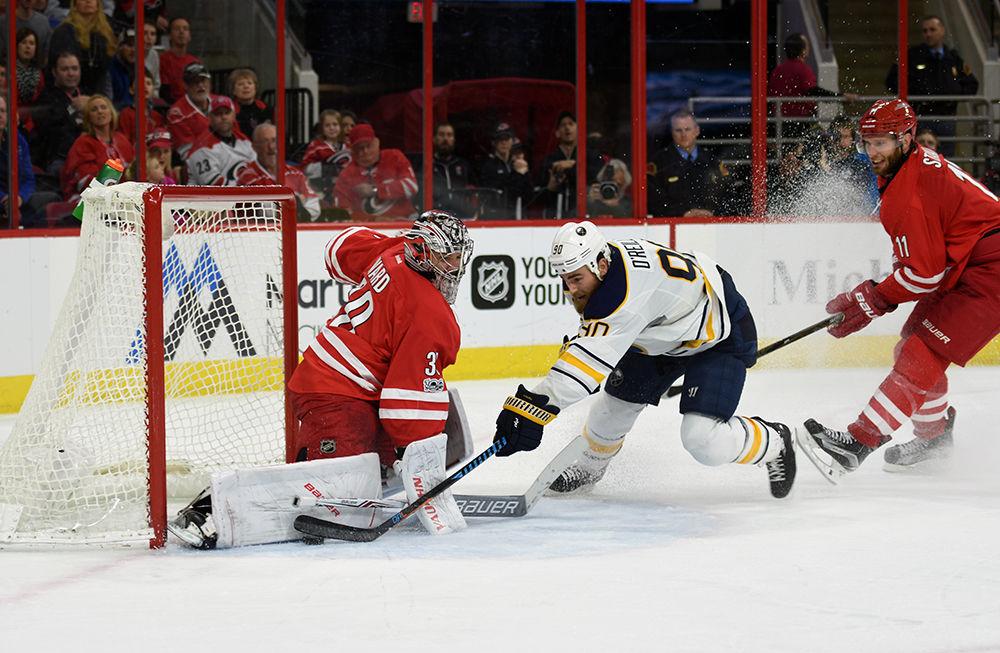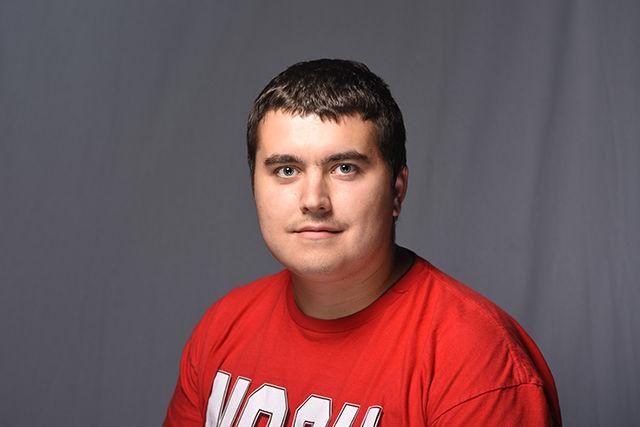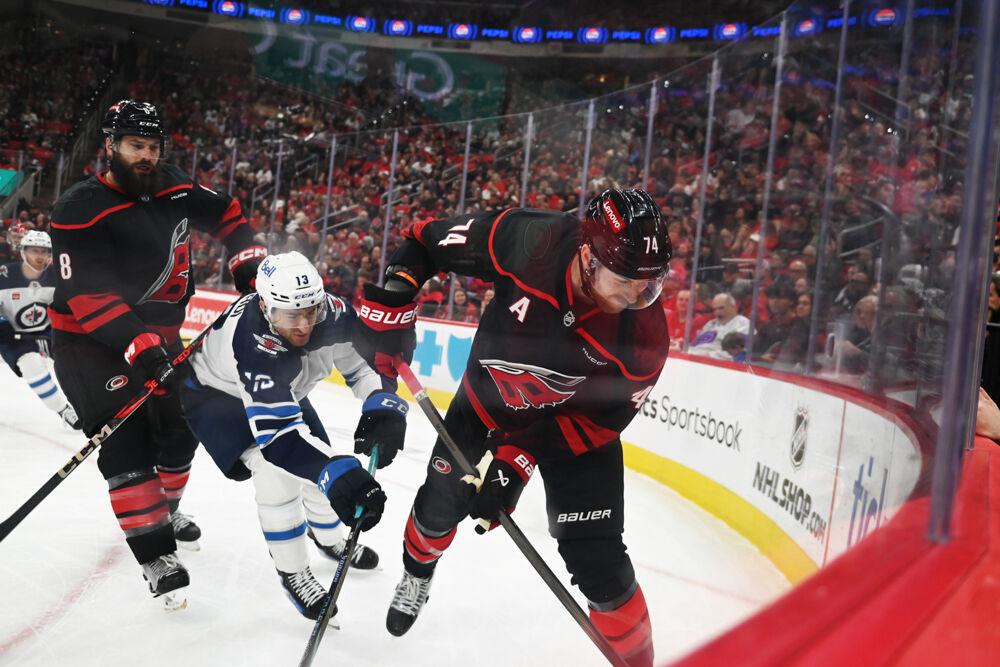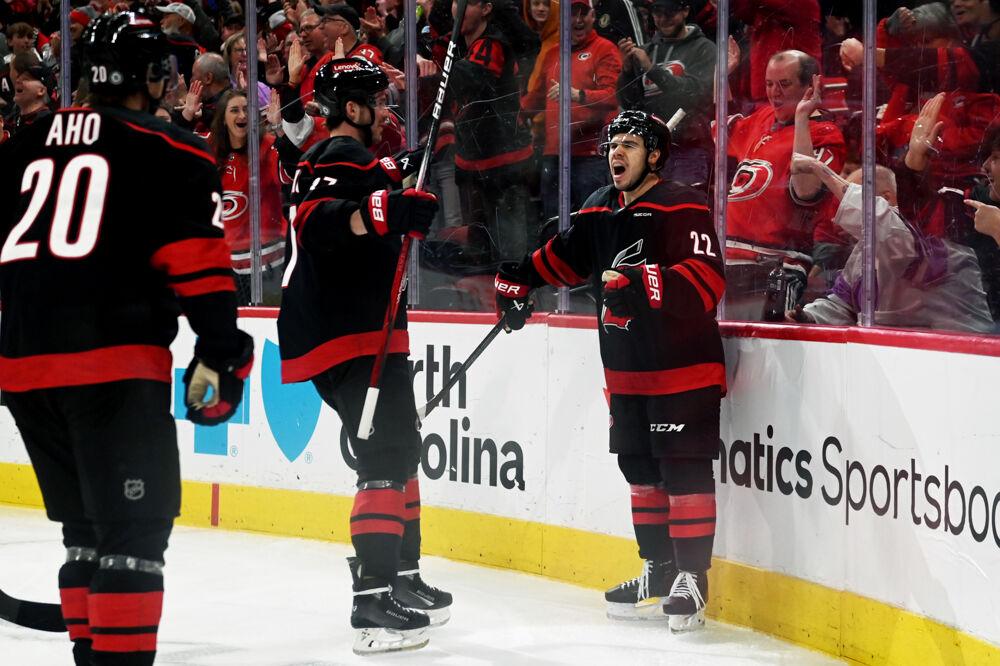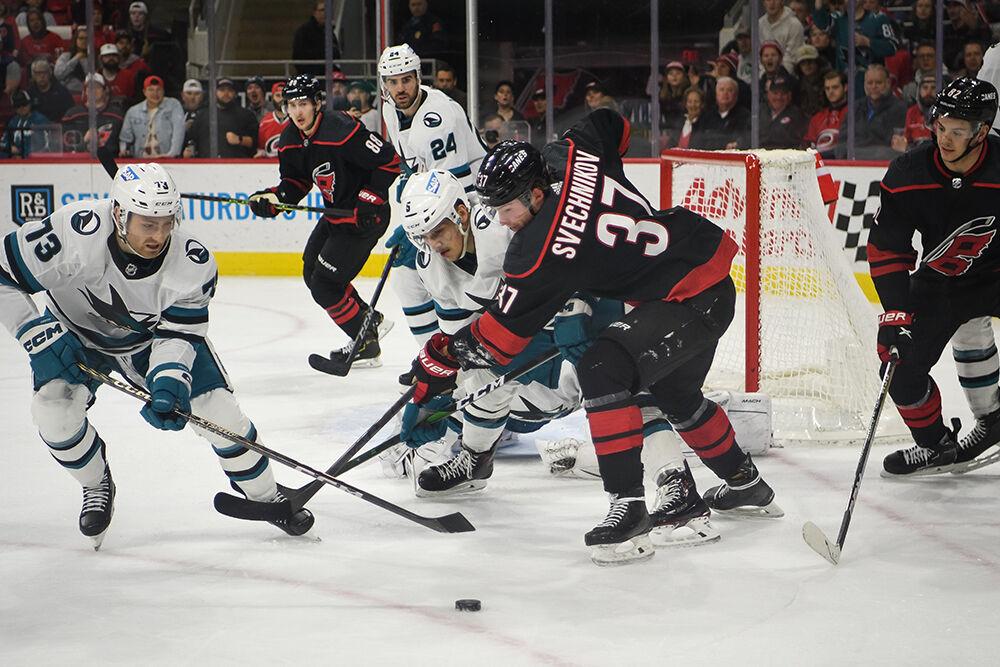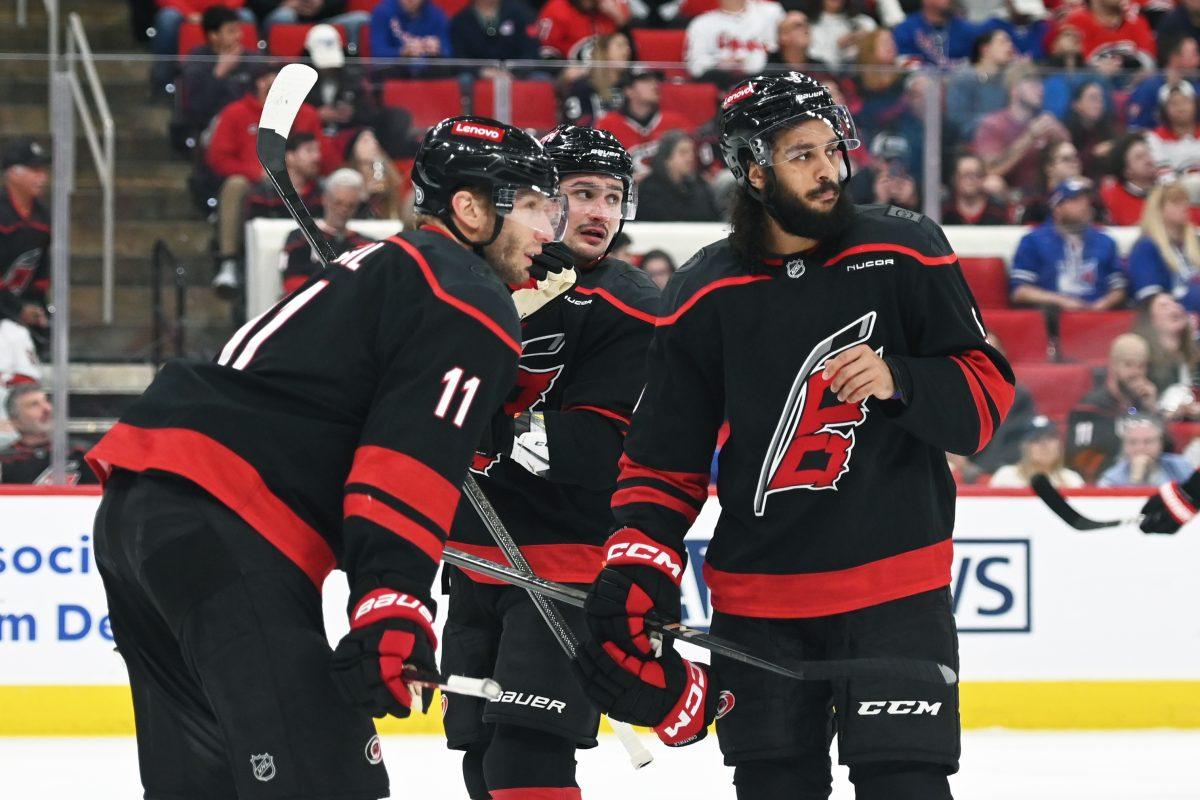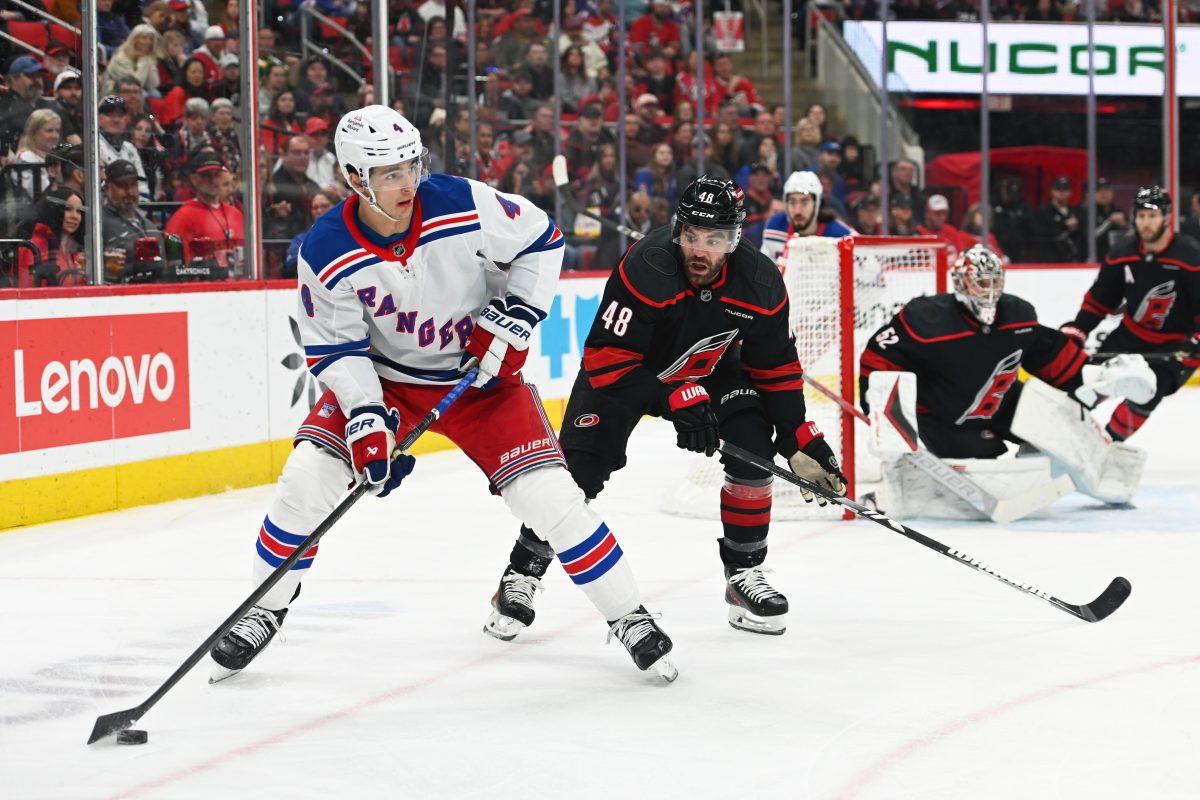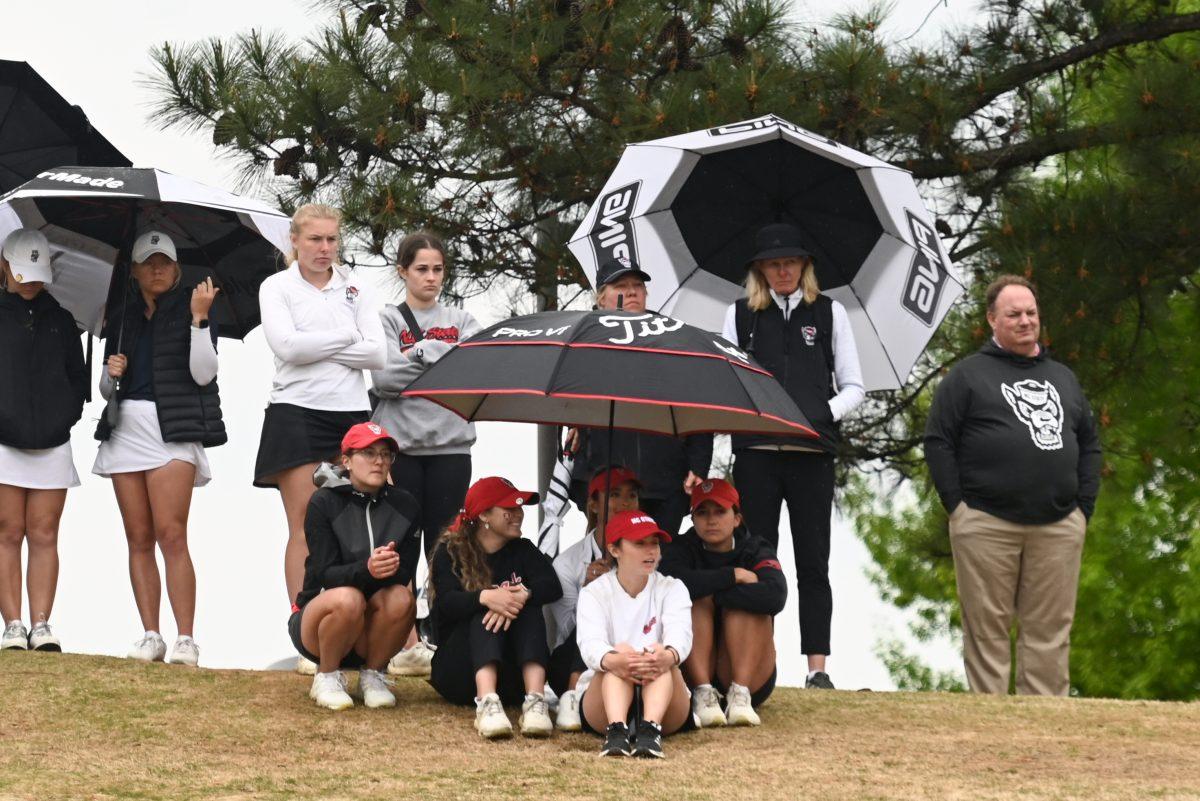The grind of an 82-game NHL season is a long one. The Carolina Hurricanes are now just over halfway through the 2016-17 edition of that grind. Having played 43 games following a 7-4 home victory over the New York Islanders, the Canes have 39 games to go.
Carolina is where it wants to be past the halfway point: right in the thick of the playoff race. Thanks to a four-game homestand that saw the Canes pick up all eight possible points, the team currently sits one point back of the Philadelphia Flyers for the final wild card spot in the Eastern Conference, with three games in hand on the Flyers.
So, how did the Canes get here, and what needs to happen the rest of the way for the team to achieve its goal of ending a seven-year playoff drought? Let’s take a look.
Lights out at home: PNC Arena has been good to the Canes this year. The team ranks sixth in the NHL with a win percentage of .763 at home, going 15-4-1 in its home slate so far. The Canes have lost one game in regulation at home since Nov. 10 and are 14-1-1 in their last 16 at home. Needless to say, the guys in the sightless eye are playing some phenomenal hockey in their barn.
You are allowed last change on home ice in the NHL, which has allowed head coach Bill Peters to gain favorable matchups for his players. He has been able to use his top defensive pairing of sophomore blueliners Jaccob Slavin and Brett Pesce along with top-notch two-way center Jordan Staal to shut down opposing teams’ best players. He has also picked good matchups for his big guns, such as leading scorer Jeff Skinner.
Despite the team’s prowess on home ice, the team still ranks dead last in attendance. If the strong play continues and the team stays in the playoff picture, that should improve, and bigger crowds would figure to give the team even more of an advantage at home. With 21 home games remaining compared to 18 on the road, more strong play at home will be vital as the Canes try to earn a playoff berth.
Cam Ward: After a rough start to the season in October, Carolina’s man between the pipes has been phenomenal since the calendar flipped to November. Ward has compiled a .920 save percentage and 2.20 goals against average to go with 17 wins since the start of that month, and has carried the team for long stretches. He has improved in terms of his overall play, and there is a greater amount of trust between him and his defense, but the biggest factor in Ward’s rebound seems to be his mental state.
In years past, it seemed if Ward gave up a bad goal or made a mistake, he would let it stick in his mind and things would snowball from there. Now, if that happens, the veteran netminder seems to let it go, make the next save and move on. A calm, cool and collected Ward continuing his strong play will be another important factor to the Hurricanes’ playoff push.
Top-ranked penalty kill: The Canes’ penalty kill is, simply put, outstanding. Carolina is first in the league, killing 88.7 percent of penalties. The team has only yielded 12 power-play goals this season, while scoring five goals of their own shorthanded for a remarkable minus seven goal differential down a man. The team being able to consistently shut down other teams’ power plays has allowed their even-strength game and their own power play to take over games, something that will only get more important down the stretch.
While a lot has gone well for the Canes this year, there are a couple things the team will need to improve on in the second half to get into the postseason.
Find a way on the road: While Carolina has been one of the best home teams in the league this season, it has been one of the worst on the road. The Canes’ road winning percentage of .364 sits 27th in the NHL, mostly due to a season-opening six-game trip that saw the Canes only pick up one win.
The Canes are five games under .500 on the road, and will probably need to at least push closer to an even mark with their final road record. The good news is, the team has played some good games on the road of late without getting the results. The Canes are a confident group right now, especially after their strong run at home, so hopefully the team will be able to translate that to some road wins.
Find a solution at backup goalie: This issue is the one that could be the most likely to cost the Canes a playoff berth. Ward has played extremely well for two and a half months now, and the team has continued to ride him as a result. The victory over the Islanders was Ward’s 19th consecutive start. Part of the issue is the team has not had a reliable option.
Eddie Lack, the normal backup, has been sidelined since early November with a concussion, and did not play well before getting injured. AHL veteran Michael Leighton played well in Charlotte and does have a win on the stat sheet, but has not made a start for the Canes since Dec. 3.
With each point being precious, the Canes have continued to ride the hot hand in Ward, and he has rewarded them for the most part. While the rest of January and February’s schedule seems to set up well for continuing to use Ward, March does not. The team will play 18 times in 31 days in the final full month of the season, with no more than one day off between games and multiple back-to-back sets. Whether it is getting Lack healthy, putting some trust in Leighton or perhaps trading for a backup, the Canes will need a viable second option in net for that daunting stretch.
Two games past the halfway point of the season, the Hurricanes are in a good spot in the playoff race, especially given the way they started the season. If the team can continue to do what it has done well and improve on a couple sore spots, a spot in the Stanley Cup Playoffs for the first time since 2009 should be within reach.


